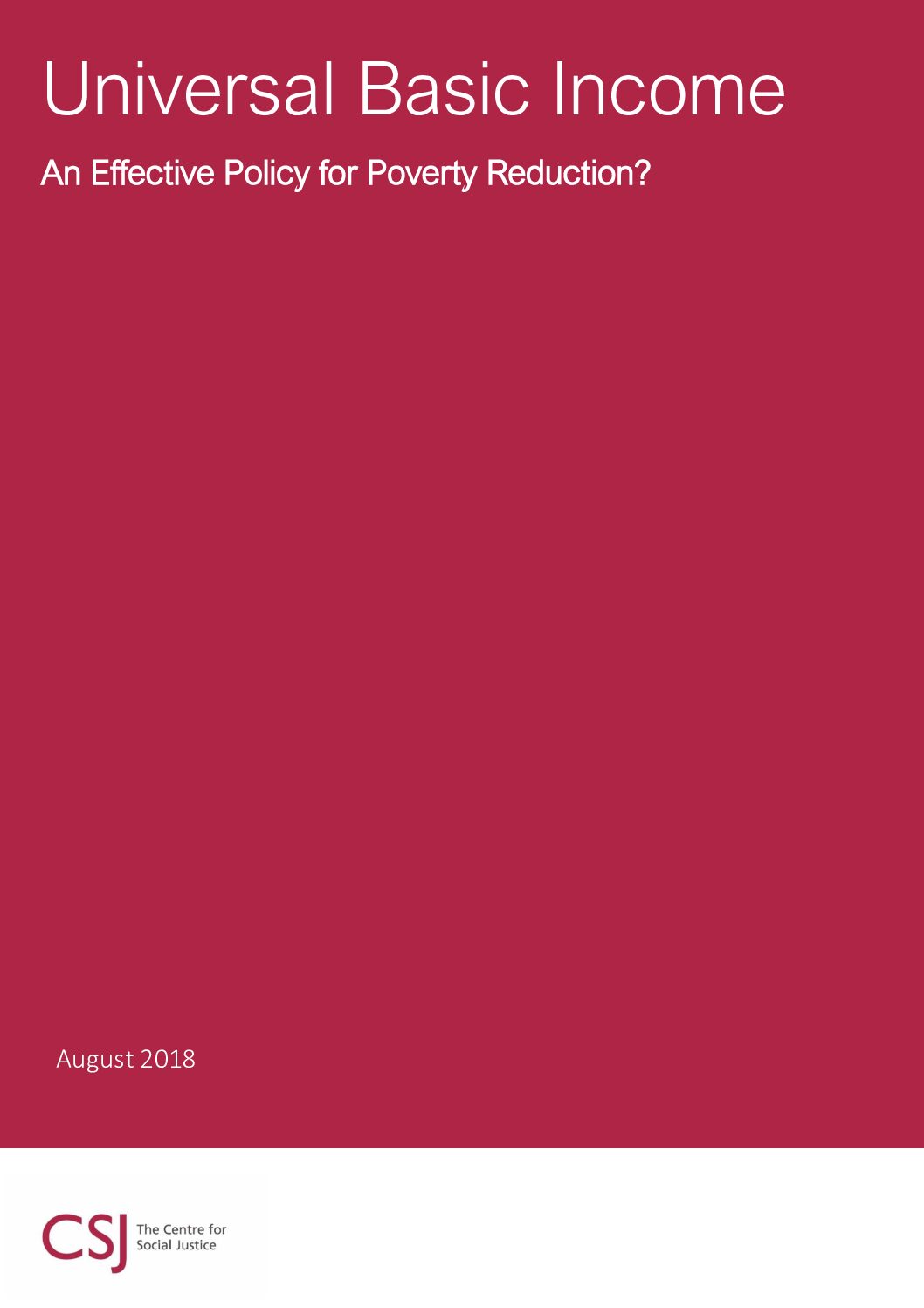Executive Summary
Universal Basic Income (also known as UBI) has emerged as one of the most exciting and ambitious ideas in a generation. Understood as an unconditional cash transfer offered to anyone regardless of their income, it has been heralded as an answer to the problem of poverty and social breakdown. It offers individuals the opportunity to lead the life they want to lead, say no to degrading and low paid work, and afford the chance to invest in boosting their own productivity. In a future of precarious employment and increased automation, UBI offers economic security for all. But is this the case… and does the rhetoric match reality? This paper argues that UBI is a false hope. While offering low income individuals better financial support is something the CSJ endorses, UBI:
• Is unaffordable, putting at risk the provision of important services in healthcare and
education.
• Doesn’t meet the needs of low income households facing complex problems such as
drug addiction, dangerous debt, and family breakdown.
• Provides a major disincentive to find work, which is the best route for many people
out of poverty.
• Is no more generous to the most disadvantaged households than the provisions under
Universal Credit.
In the following pages we outline the practical implementation of UBI, detail the arguments for and against it and compare its generosity to Universal Credit. In the appendix we summarise historical examples of UBI pilots that have been introduced around the world. Assuming the primary aim of UBI is to tackle poverty, there is little or no evidence to suggest it would achieve its aim. Many of the arguments in favour of UBI do not hold up in reality, and there is little reason to think it would be a better alternative to the existing welfare state which is means tested and conditional for all claimants. Lastly, any prediction that jobs will disappear in the future as automation and technology reduce the need for humans is an overly fatalistic projection. History proves that mechanisation and digital technology have pushed employment levels to the highest in history. Deloitte predicts that for every job lost to automation, approximately 4 have taken its place. There is every reason to assume that there will be more jobs in Britain in the future than there are here today.

